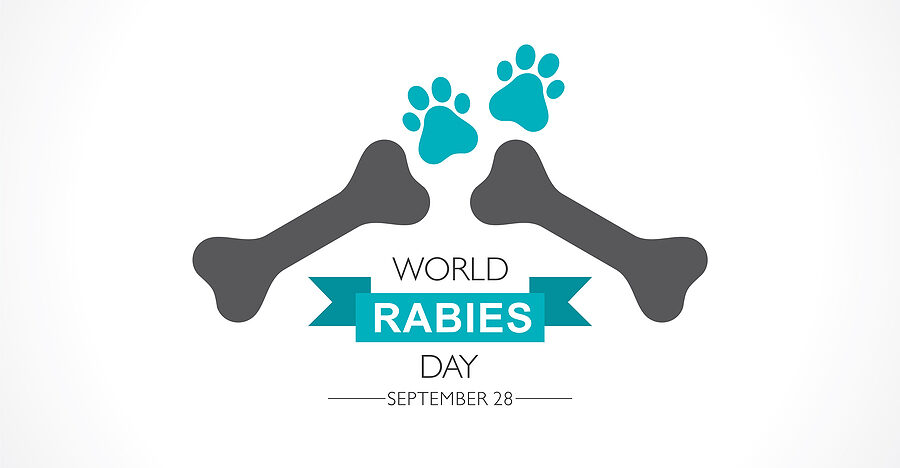Today, September 28th, is World Rabies Day! This day is brought to us by the Global Alliance for Rabies Control, which is an esteemed not-for-profit organization founded with the collective goal of bringing more Rabies awareness around the globe with the hopes of reducing canine fatalities caused by the virus.
To honor World Rabies Day, continue below to review some frequently asked questions about the Rabies virus, namely its link to wildlife management and control.

World Rabies Day
September 28th
World Rabies Day is a worldwide awareness campaign aimed to spread knowledge and conscientiousness about Rabies protection and abatement. This is backed by various global human and veterinary health organizations, including the U.S. Centers for Disease Control and Prevention (CDC), World Health Organization (WHO), Pan American Health Organization (PAHO), and World Organisation for Animal Health (WOAH). It is even a United Nations Observance.
The first effective Rabies vaccine was invented by Louis Pasteur and his colleagues. All cases of Rabies Lyssavirus in humans were fatal until the vaccine was invented in the early 1900’s. Now, if a person is ever infected with Rabies, they can go to the emergency room and receive effective treatment to stop the virus from multiplying.
September 28th is reserved as World Rabies Day because it is the anniversary of Louis Pasteur’s death. This day honors his contribution to Rabies protection and abatement, plus works to bring more awareness, education, and advocacy surrounding the significant impact the Rabies virus has on both people and animals. Remember, Rabies is 99% fatal but 100% preventable. Do your part and get yourself, your loved ones, and your pets vaccinated!
FAQS About Rabies
Is Rabies Fatal?
Rabies Lyssavirus (RABV) is one of the deadliest infectious diseases in the world. Once signs and symptoms appear, 99% of the time it is fatal. According to Rabiesalliance.org, “More than 59,000 people die from rabies every year, 99% of which are a result of exposure to an infected domestic dog. This means that a person dies every 9 minutes from rabies.” According to the CDC, “about 60,000 Americans get Post-Exposure Prophylaxis (PEP) each year to prevent rabies infection after being bitten or scratched by an infected or suspected infected animal.”
Which Animal Spreads Rabies the Most?
Raccoons, skunks, bats, and foxes are most known for carrying the Rabies virus. But, according to the field coordinator for the National Rabies Management Program, Jordona Kirby, “Annual statistics indicate that raccoons are one of the number one species in which we see rabies cases every year.” Since a widely accepted public and animal health initiative in the 70’s, the U.S. government has been dispersing oral rabies vaccines through the National Rabies Management Program. In fact, this program has made history because it is the biggest organized effort to abate a zoonotic disease in wildlife ever in the United States.
Do I Have to Vaccinate My Pets Against the Rabies Virus?
The Indiana Administrative Code statute states that all dogs, cats, and ferrets must be vaccinated at 4 months of age, and then re-vaccinated annually, and then re-vaccinated according to manufacturer’s instructions. Pet vaccinations must be administered by a licensed and accredited veterinarian. According to the CDC, “Most pets get rabies from having contact with wildlife.” So, get your dogs and cats vaccinated annually and contact a local Indianapolis critter control company to protect your property from nuisance wildlife intrusions.
Are animals becoming a nuisance around your residential or commercial property in Indiana? Contact Budget Animal Removal at 317-875-3099 for DNR licensed and insured critter removal and control in Indianapolis and its surrounding counties. Request a free estimate or advice, today!
Related Posts:
Current Efforts to Reduce Rabies in U.S. Racoon Populations
Why You Should Never Adopt a Wild Animal
What to Do if You Find a Baby Animal in Your Yard
